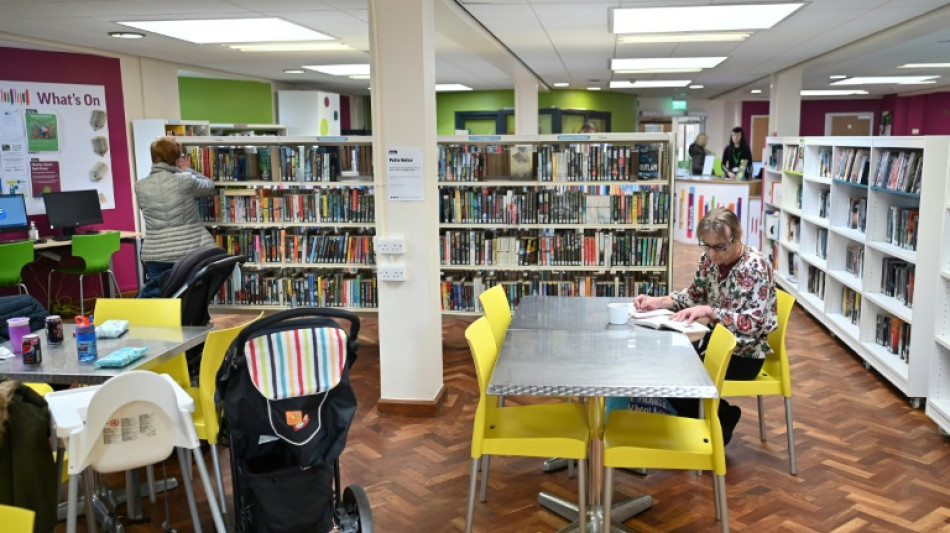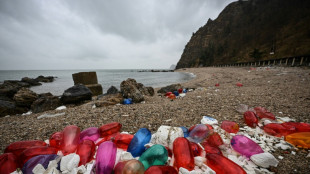

Libraries offer novel 'warm space' for hard-up Britons
As Britain endures a cost-of-living crisis, public libraries and other community hubs are providing "warm spaces" for vulnerable members of society to stay safe and access free food this winter.
In Ipswich, a town in eastern England, local resident Marina Flynn has been a regular visitor to Chantry Library over the past year.
"It's a great warm space to come to, obviously with the cost of heating these days," Flynn told AFP as the outdoor temperature registered about five degrees Celsius (41 degrees Fahrenheit).
"It's been as cold in my house as outside" this winter, added 54-year-old Flynn, who is unemployed and relies on the library's foodbank that provides donated staples and sanitary products for free.
"The foodbank I use quite a lot with the cost-of-living crisis, not being able to afford food," said Flynn, who competes to be heard against a babble from babies and toddlers heading home with carers following a musical activity organised by the library.
UK public libraries are government-funded via local councils but have suffered from large budget cuts in recent years, causing many to fundraise and rely on volunteers to help bridge gaps.
- 'Areas of deprivation' -
With inflation soaring worldwide last year on surging energy costs, a charity seeking to improve UK library services produced national guidance for organisations wanting to set up "warm spaces" ahead of the current winter.
Local councils are using the guidance -- an idea of money-saving expert and television personality Martin Lewis -- to help set up warm spaces in other community venues such as churches and village halls.
"The services have been well used," said Nick Poole, chief executive of the library charity CILIP.
"It's mainly been focused on areas where you've got multiple deprivation or older and vulnerable communities," he told AFP.
The government of Prime Minister Rishi Sunak is subsidising electricity and gas bills this winter but households and businesses are still left paying far more than a year ago.
Poole would rather that extended support services did not exist in Britain's thousands of libraries.
"But if they're going to, we want them to be safe and welcoming and inclusive."
In one corner of Chantry Library stands a small cafe, which provides free hot drinks and soup on Sundays.
"We have customers come in that are sad and we help them out as much as we possibly can," said Mark Dyer, the eatery's 48-year-old owner.
- 'Come for company' -
Poole said it feels like "a natural extension of the function of" libraries to be safe and warm spaces.
"People don't want to admit they're in trouble. People have used the (cost-of-living) services but don't like talking about it very much," he added.
Visitors whose needs cannot be met by the library are signposted to other support groups.
"I live on my own so I tend to come up here for company," said Flynn, who attends a weekly men's talking group.
Later in the day, a group of women gather round a table to knit, while donated clothes hang next to the library's entrance on "kindness racks".
"We have had a clothes rack since before the cost-of-living" crisis, said Vicki Mann, manager of Chantry Library.
"But that has grown given the fact that we don't just offer children's clothes now... and we can't keep it replenished enough."
According to Poole, libraries "are always there to meet local needs.
"But at the same time, we can't do everything for everyone with no money... It's very hard for the libraries to exist themselves. They cost money to heat and light."
A.Wilson--MC-UK




